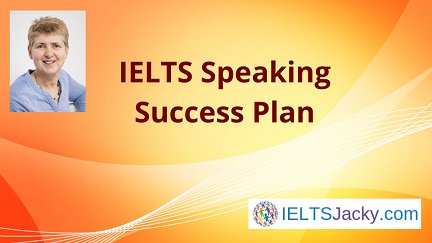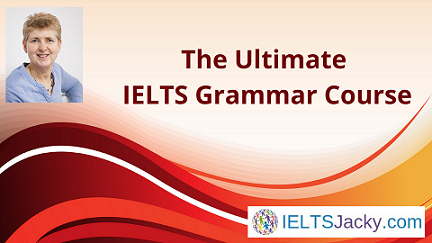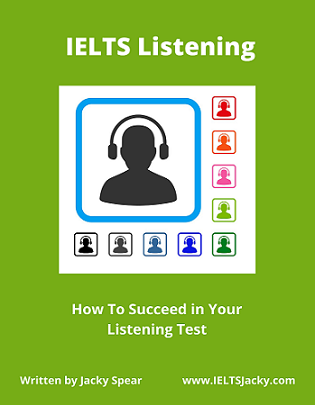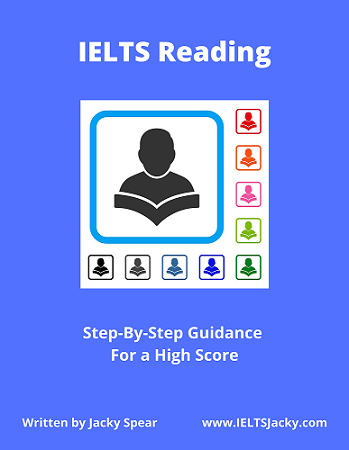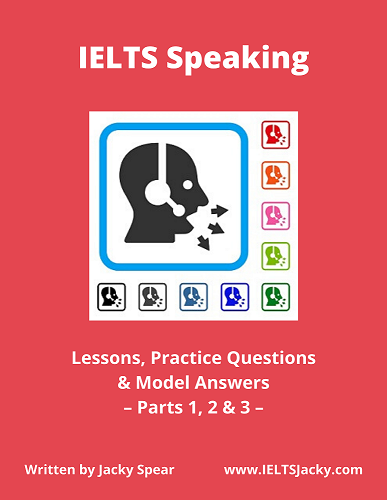IELTS Listening
Sentence Completion
Sentence completion
questions are one of the less common types of IELTS Listening questions but you
need to know how to answer them in case you do get one.
They are a type of gap fill question where you must listen to the recording and fill in the missing words in the sentences to complete them. It's very often the ending of the sentence that you'll have to complete but you may also have to fill in words within sentences.
Sentence completion questions can appear in any section of the IELTS Listening test but as long as you have a good strategy to follow, you’ll be able to answer them successfully. Follow the advice in this lesson and you’ll be well prepared.
The lesson includes:
- Sample questions
- Strategy & tips
- Practice question
- Answers
- Vocabulary
Here are two IELTS Listening sentence completion questions from past papers.
IELTS Listening Sentence Completion – Sample Question 1
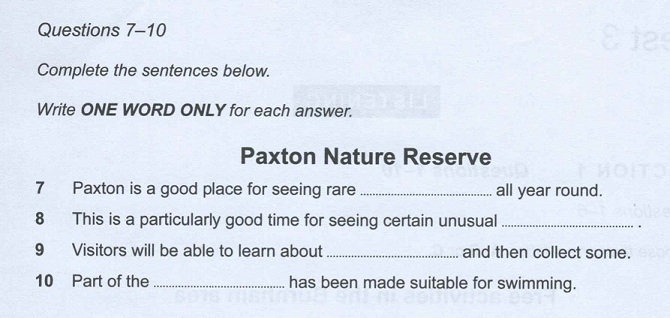
Source: Cambridge English test paper
The recording for this sample question is a telephone conversation between a member of staff at Burnham Tourist Office and a tourist.
IELTS Listening Sentence Completion – Sample Questions 2
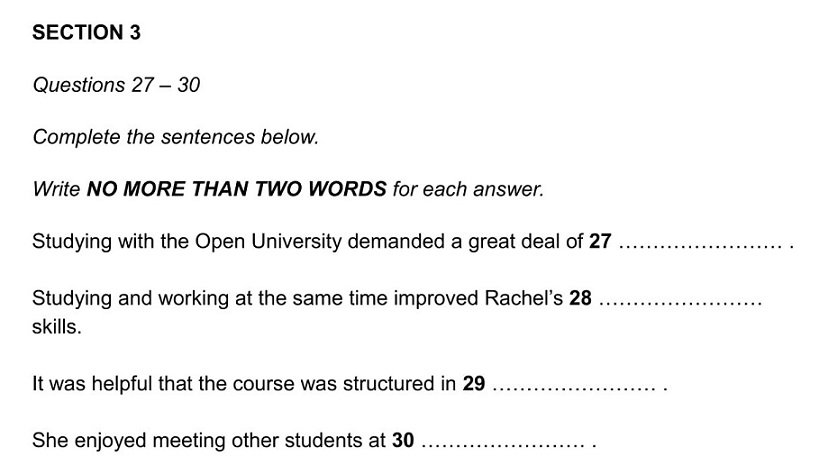
Source: Official website www.ieltsessentials.com
The recording for this sample question is a discussion between two friends about studying with the Open University. Rachel has already done a course at the university, but Paul has not.
I’m going to use this second example to teach you the answer strategy and give you tips and advice on how to overcome the challenges presented by this type of question.
Strategy & Tips
You will have a short time to prepare before the speakers begin talking. Use this time to familiarise yourself with the question and focus your mind on what you need to listen out for.
1) Read the instructions
Read the instructions carefully, paying particular attention to how many words you are allowed to write for the answer.
The instructions for our sample question state that you must,
Write NO MORE THAN TWO WORDS AND/OR A NUMBER for each answer.
If you write more than two words, your answer will be marked incorrect even if the information you give is correct.
2) Answer order
The answers will come in the
same order in the recording as they are listed in the question so, for this question,
you will hear answer 27 first, then answer 28 and so on. This makes it easier
to pick out the answers than if they were in a random order.
3) Predict
the answers
Try to predict what the answers might be. This will focus your mind on what to listen out for in the recording.
Occasionally, you may be able to predict the actual word but it should certainly be possible to determine the type of word needed to fill each gap, such as,
a noun, an adjective, a verb
Can you predict what types of words that are missing in our sentence completion practice question?
Here are the 4 sentences:
- Studying with the Open University demanded a great deal of 27 ………………… .
- Studying and working at the same time improved Rachel’s 28 …………………… skills.
- It was helpful that the course was structured in 29 …………………… .
- She enjoyed meeting other students at 30 …………………… .
They will all be nouns.
4) Synonyms and paraphrasing
Synonyms and
paraphrasing will be used extensively in the recording. So, you will not only be
listening for the exact words that are used in the sentences but also, different words
and phrases that have the same meaning.
Rachel is probably not going to say,
Studying with the Open University demanded a great deal of ……. .
She will say it in a different way. For example,
My studies required a high level of ….
These synonyms have been used in this example:
demanded à required
great deal à high level
So, another good use of your preparation time is to underline key words and phrases and quickly think of synonyms that might be used. These are the most likely words to be replaced in our sample sentences:
Studying with the Open University demanded a great deal of 27 …………………… .
Studying and working at the same time improved Rachel’s 28 …………………… skills.
It was helpful that the course was structured in 29 …………………… .
She enjoyed meeting other students at 30 …………………… .
Any clues you can get will help you to understand the recording and identify the information needed for the answers.
We’ll look at the synonyms and paraphrasing that have been used in this question when we review the answers.
5) Grammatical accuracy
Check that each sentence is grammatically correct once you’ve added your answer. If it is not, then your answer is incorrect.
You may have to change the form of a word you identify as correct to make the sentence grammatically correct. For example,
Recording text: John – “I’m so frustrated that the insurance company are taking so long to settle my claim.
Sentence: John found it very (frustrating) that his accident claim was not sorted quickly.
6) Guess if necessary
My final tip is to never leave a blank space on the answer sheet. If you miss an answer, take an educated guess. This gives you at least some chance of getting it right. Don’t stress about a missed answer or it will affect your ability to answer the next set of questions. Just make your choice and move on.
Practice Activity
It’s now time for you to practice using this strategy on our sample question. Here it is again with a reminder of the context.
IELTS Listening sentence completion question

Context: Two friends, Rachel and Paul, are discussing studying with the Open University. Rachel has already done a course at the university, but Paul has not.
Listen to the recording and answer the question. Refer back to the strategy as you need to and keep the predictions in mind. When you’ve completed the practice activity, go through the answers below.
Answers
Here are the correct answers:
Answers:
27 motivation
28 time(-)management
29 modules
30 summer school(s)
We’ll now look at them in
context and examine the language that has been used.
Answer 27: Motivation
Here’s the sentence followed by the section of dialogue this answer appears in:
Studying with the Open University demanded a great deal of 27 …………………… .
Paul: The other thing I
wanted to ask you was, did you find it hard, studying with the Open
University?
Rachel: You mean, because you’re studying on your own, most of the time?
Paul: Mm.
Rachel: Well it took me a while to get used to it. I found I needed to maintain a high level of motivation because it’s so different from school.
The matching phrases are:
- demanded a great deal of (motivation)
- I needed to maintain a high level of (motivation)
First, let’s look at the synonym that’s been used.
great deal à high level
There is also a good example of paraphrasing:
demanded à I needed to maintain
This is typical of how language will be used in sentence completion questions in the IELTS Listening test.
Answer 28: time(-)management
Here’s the sentence followed by the section of dialogue this answer appears in:
Studying and working at the same time improved Rachel’s 28 ………………… skills.
Another thing was that I got very good at time management because I had to fit time for studying round a full-time job.
Earlier, we identified ‘improved’ as a key word in the sentence that was likely to be paraphrased and we were right.
improved à got very good at
The first phrase of the sentence has also been paraphrased in the recording:
Studying and working at the same time à had to fit time for studying round a full-time job
Spend a few moments studying this vocabulary to really understand how the language has been changed yet keeps the same meaning.
Answer 29: modules
Here’s the sentence followed by the section of dialogue this answer appears in:
It was helpful that the course was structured in 29 …………………… .
What makes it easier is that the degree is made up of modules, so you can take time off between them if you need to.
These are the synonyms used:
helpful à makes it easier
course à degree
structured à made up of
You can see how important it is to learn synonyms when working on your vocabulary. For help with learning Vocabulary For IELTS, click this link.
Answer 30: summer school
Here’s the sentence followed by the section of dialogue this answer appears in:
She enjoyed meeting
other students at 30 …………………… .
… even though you’re
mostly studying at home, remember you’ve got tutors to help you, and from
time to time there are summer
schools. They usually last a week. They’re great because you meet
all the other people struggling with the same things as you. I’ve made some
really good friends that way.
This is quite a tricky answer to identify as the key words don’t help very much and the answer is given before the information that matches the question.
However, it’s typical of the sort of question you’ll get in a sentence completion task as it tests your ability to listen to an extended section of text and pick out the required detail hidden within it.
The best way to improve this skill is to listen to conversations on the radio and podcasts. Just 10 minutes every day will be of huge benefit.
I hope you’ve found this lesson helpful. Now practice using this strategy with other sentence completion questions from past papers. It’s only with practice that your skills will improve and you’ll get the score you need in your IELTS Listening test.
You'll find lessons on how to answer other types of Listening questions in the menu below.
Want to watch & listen to this lesson on sentence completion questions?
Click on this video.
Like this page?
IELTS Listening – All Lessons
IELTS Listening Test – Understand the format & question types. Know what skills are assessed. Also, discover 3 important marking tips.
Listening Strategies – Learn 3 essential listening strategies – question analysis, answer prediction & how to use keyword clues.
Listening Skills – Learn the 4 key listening skills needed for a high score highly. Examples from real questions.
Listening Exercises – 8 listening exercises to help you recognise & learn vocabulary for 6 common topics – time, numbers, prices, dates, letter names & addresses.
The 10 Question Types – Examples of all 10 types of Listening questions. Learn how to recognise & understand them. Links to 10 step-by-step lessons.
Listening Tips – Top 10 tips to bring you success in your Listening test. Essential information you need to know to achieve a high score.
How to Improve Your Listening Skills – 6 simple strategies essential for achieving a high score in the test.
Listening Practice – 4 practice techniques to develop your listening skills
Map & Plan Vocabulary – Learn the vocabulary you need for your test. 5 maps & plans with sample sentences containing common vocabulary of location & direction.
Listening Practice Samples – Short activities to improve your listening skills & help you learn topic vocabulary.
Genuine Full Practice Tests:
The 10 Question Types
Click the links below to learn how to answer each type of question.



